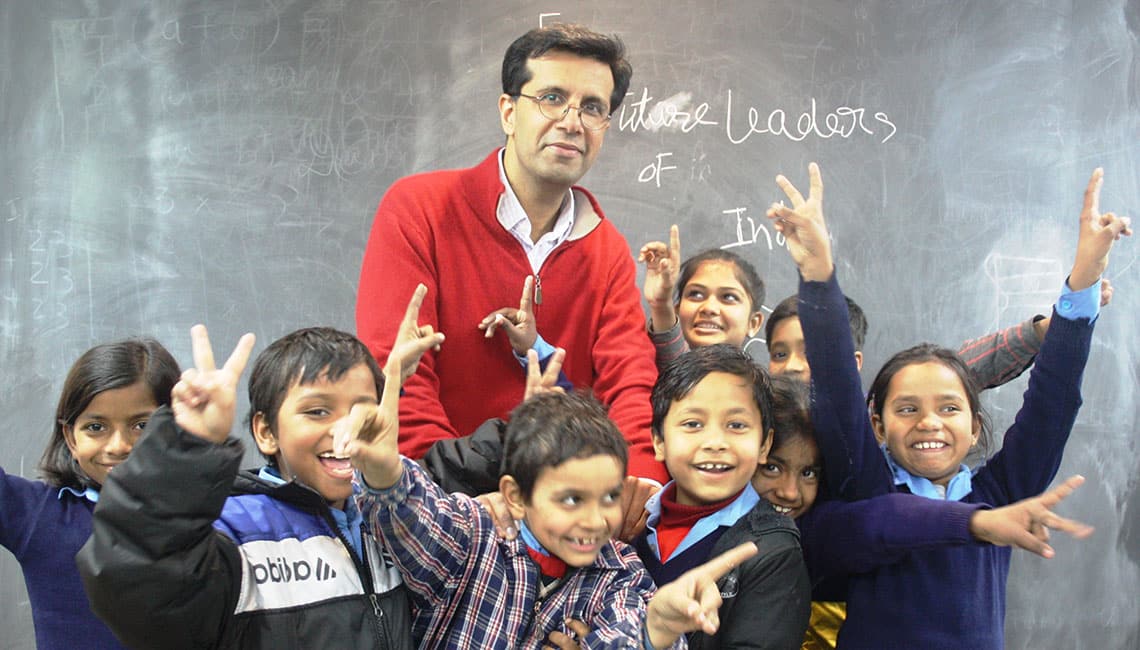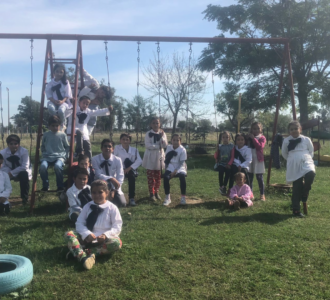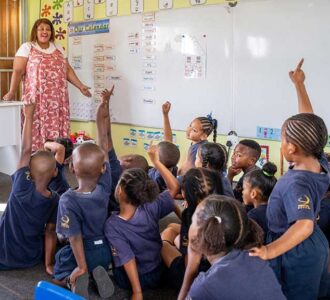From some of the highest rates of learning poverty in the world to the highest-performing education systems in the world, Asia shows the tremendous challenges to be overcome, but is also a shining example of what can be achieved when we get it right.
The Finalists of the inaugural Asia Education Medal show how leaders across the continent are approaching this critical question.
Literacy and numeracy

Perhaps the greatest intervention that can be made to improve education outcomes across Asia is focusing on Foundational Literacy and Numeracy (FLN).
That’s why, at Central Square Foundation, Ashish Dhawan has steered the organisation to play a catalytic role in centring FLN as the primary objective of the K-12 education ecosystem in India, which serves 250 million children. Dhawan launched CSF shortly after India enacted the Right to Education Act, which guaranteed free and compulsory education for children aged 6 to 14. But while access to education has become almost universal, India still suffers from poor quality education being delivered, with low learning levels and high dropout rates. Dhawan brought to CSF a focus on data to objectively analyse areas in which private philanthropic investment could catalyse systemic change and he made strategic investments in a number of NGOs to increase their capacity to work on innovative approaches to improve FLN outcomes.
Literacy is also highly valued by education leaders in Pakistan like Baela Jamil, CEO of Idara-e-Taleem-o-Aagahi (Centre for Education and Consciousness), who founded the Children’s and Teachers’ Literature Festival, now called the Pakistan Learning Festival, a social movement that promotes reading and creative learning among all children. Promoting active libraries, children’s books and reading hour in schools, her organisation has distributed over 1.2 million books in more than 10,000 schools/libraries nationwide reaching over 2 million children.
Meanwhile, in Singapore, Duriya Aziz Singapore Wala, Senior Vice President, Education (International), at Scholastic Inc, has worked to introduce Singapore’s mathematics pedagogy and programmes to more than 50 countries across Asia and the world. Dr. Aziz has worked as a champion for reading and mathematics all over the world. She knows that confidence in reading gives students confidence to do maths and confidence in maths gives kids the confidence to deal with challenges and to solve problems. It gives them agency. Consequently, her work in education, at Scholastic, has focused on taking proven pedagogical best practices from one education system and working with education leaders and teachers in a different context to implement them in ways that are suited to the new context and respect their cultural norms and teacher beliefs.
Harnessing technology
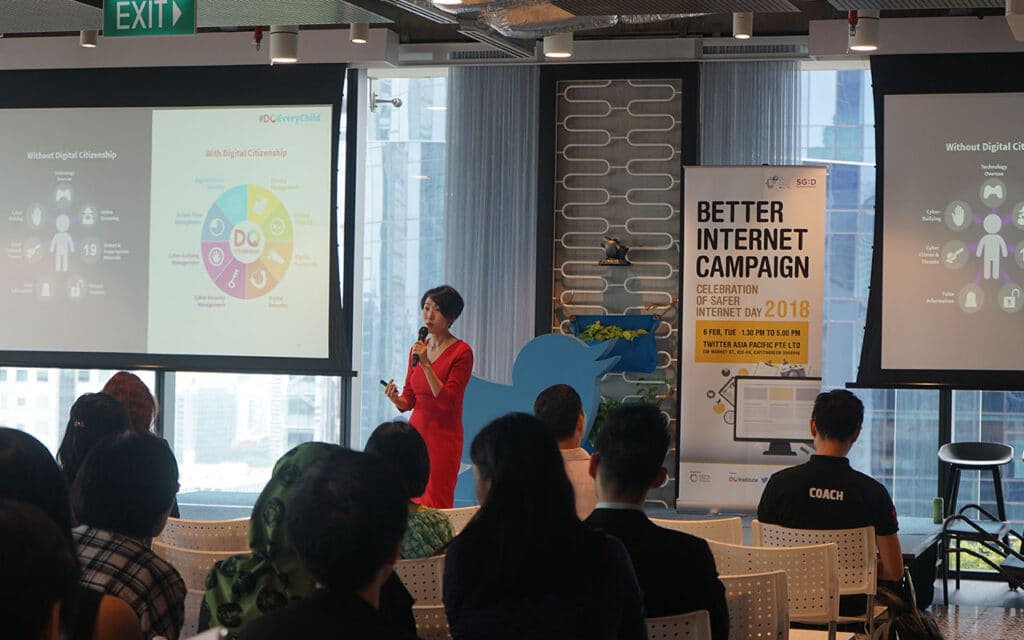
Technology is a key tool to ensuring Asia fully embraces its potential and closes learning gaps, so it is no surprise that so many Finalists for the Asia Education Medal recognise its importance in their work.
This includes Nargish Khambatta, Principal and CEO of GEMS Modern Academy, an independent international school in Dubai, UAE. Having integrated technology and entrepreneurship into its curriculum, the school has seen a 37% year-on-year rise in student participation and national and international collaborations with the likes of DFC, SAP, and Microsoft.
Another school innovating with technology is N-High School in Japan, founded by KADOKAWA DWANGO Educational Institute in Japan, under the leadership of Shinichi Yamanaka. N-High School initiated its Virtual Reality (VR) programme in 2021 to provide students with the opportunity to augment their learning experiences remotely through the utilisation of virtual environments. This technological advancement allows students to virtually explore historical landmarks in distant regions or engage in scientific experiments that may pose risks in traditional settings. Within the realm of English language education, Smart Tutor facilitates lessons through interactions with virtual avatars and assesses their proficiency in fluency, pace, and eye contact. Presently, approximately 6,500 contents offered at the school have integrated VR capabilities.
Pranav Kothari, CEO of Educational Initiatives (Ei) in India, heads up an organisation that employs the twin levers of cutting-edge pedagogical research and technology-based solutions to help students across different socio-economic backgrounds learn with understanding. Through his work, Kothari has sought to address the challenge that while school enrollment has expanded in India with the broadening of the country’s education infrastructure, schooling has not translated into learning. Rote learning, a ‘one-size-fits-all’ teaching approach, low-quality assessments, and weak accountability are among the issues he seeks to tackle, pointing out that children reach young adulthood without having acquired basic skills like calculating the correct change from a transaction, reading a doctor’s instructions, or understanding a bus schedule.
Ei works to confront these problems through large-scale assessments and Ei Mindspark – a Personalised Adaptive Learning tool that identifies individual student learning levels and misconceptions in Mathematics, their vernacular language, and English at a nuanced level through diagnostic tests based on product research from over 20 million+ assessments. It then creates an individualised learning path for each student, providing targeted instruction to enable teaching at the right level. It employs a gamified interface, using questions, activities and challenges to engage learners.
With the increased use of technology comes the increased importance of digital literacy. Yuhyun Park, founder of the DQ Institute in Singapore, is dedicated to setting global standards for digital intelligence to ensure the safety, empowerment, and wellbeing of people, organisations, and nations in the AI age. Dr. Park created the Digital Intelligence (DQ) Framework — the global standard for digital literacy, digital skills, and digital readiness, approved by the IEEE Standards Association and endorsed by the OECD, IEEE, and World Economic Forum (IEEE 3527.1TM). She also developed the Child Online Safety Index, the world’s first metric tracker to help nations understand their children’s online safety status, which has shifted narratives around child protection on the internet.
Nation building
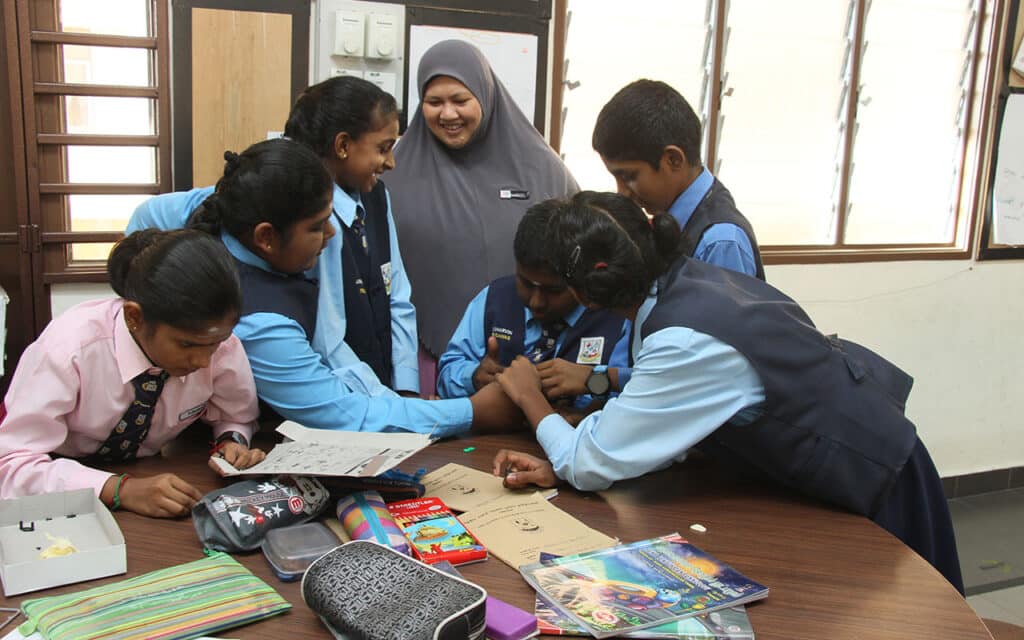
Building up a nation’s education system is vital to its future and that’s why it is such a powerful theme for Finalists of this year’s Asia Education Medal.
Shahnaz Al-Sadat is Chairperson of LeapEd Services Sdn Bhd in Malaysia, an award-winning social enterprise and Malaysia’s first homegrown Education Service Provider, which undertakes education transformation programmes and projects that support the system, school leaders, teachers, students, parents, and the wider community. She left a high-powered career in the corporate sector to embark on nation-building projects and work to transform education.
At LeapEd Services, Shahnaz Al-Sadat has championed the flagship Trust Schools Programme, which has seen LeapEd partner with the Malaysian government and CSR Foundations to enhance schools across multiple contexts: rural, urban, religious, vernacular, and indigenous education. LeapEd’s emphasis on holistic development has led to the cultivation of essential life skills among students, enabling them to excel not only academically, but with the critical skills needed for success in the 21st century.
Similarly, Ethel Agnes Pascua-Valenzuela has been recognised for her work as Commissioner at the Commission on Higher Education (CHED) for the Philippines government. She also serves as the Chairman of the CHED TWG on Lifelong Learning and is a member of the Technical Panel on Transnational Education and Distance Education.
Tackling poverty
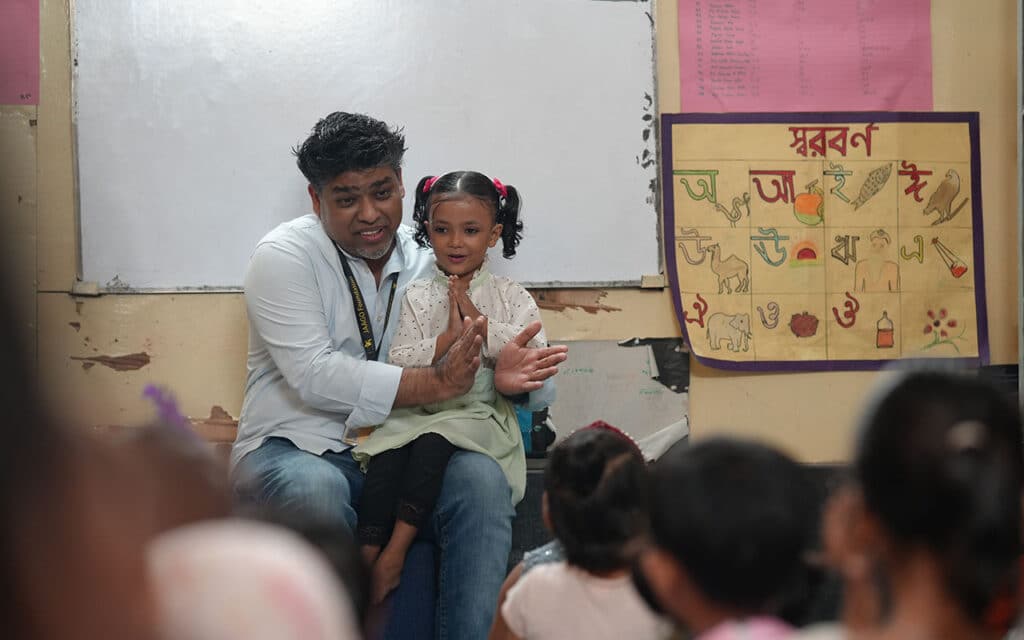
Despite great leaps in Asian education, such that some of its nations now lead the world in educational attainment, poverty remains a persistent barrier in others.
Rakshand’s initiatives span across various hard-to-reach areas within Bangladesh, which rank at the bottom of the social deprivation index. These regions face significant disparities in access to basic social services, high illiteracy rates, and security concerns, particularly affecting girls.
Korvi Rakshand, Founder of the JAAGO Foundation, heads up a non-profit organisation that empowers underprivileged individuals and communities in Bangladesh through quality education, youth development, women’s empowerment, climate change, governance, and poverty alleviation. Rakshand gave up the opportunity to inherit his family’s business to help others, founding JAAGO with only a single small room, 17 children, and the vision to eliminate poverty through quality education. Today, his initiative supports the education of 30,000+ children across 64 districts in Bangladesh. Through JAAGO Foundation, Rakshand advocates for the rights of underprivileged children to receive free-of-cost quality education, promoting gender equity in education, and empowering communities to actively participate in educational decision-making processes.
Leading the way
These are just some of the biggest challenges being tackled by leaders in Asian education today. These 10 inspirational individuals have lit the spark of change, but it is our hope that many more will be encouraged to take up the torch and write the next chapter of Asian education.
